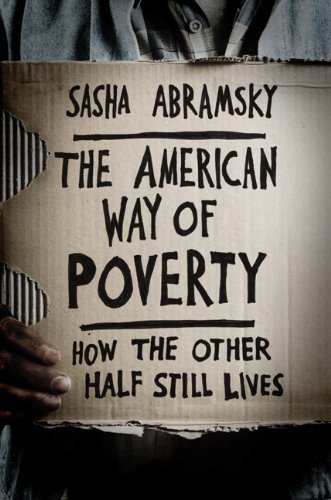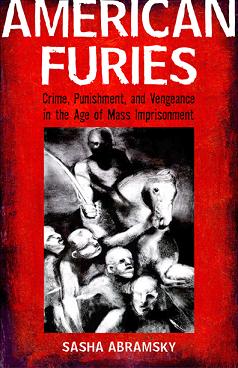A slightly modified version of some suggestions I made in a recent piece for the Guardian:
Nevada’s Democratic caucus last week and South Carolina’s Democratic primary today mean two things: firstly, enough people now consider the Democratic race to be two-person affair that Edwards is rapidly devolving into a sideshow. He still may score moderately well in at least some of the secret-ballot primaries over coming weeks, but he’s not going to be the nominee. And that’s somewhat ironic, given that his economic message seems to be becoming more relevant by the minute, as stock markets around the world shrivel and the U.S. mortgage crisis grows.
Second, while Obama’s clearly the man of the moment, Nevada’s results show that Clinton is a durable candidate. This one’s going down to the wire. And that means that both leading candidates sooner or later are going to have to start wooing Edwards and other leading national players, hoping to cast themselves as the person most capable not just of winning delegates but of building a durable campaign going into the November election.
Now the race is on for February 5th, when 22 states vote, including almost all of the states of the West. Indeed the idea of February 5th was initially a brainchild of Western political figures, who hoped to boost the region’s influence by creating a regional super-primary. Both parties are voting in Arizona, California, Colorado and Utah. Republicans are voting in Montana. Democrats are voting in New Mexico and Idaho.
With California the largest prize, and with much of the West now gravitating westwards (as I’ve talked about in earlier pieces) rather than eastward or southward in the broader regional alliances the states make, the candidates’ campaigns are looking westward … even to areas which will be remarkably non-competitive in the actual November election.
That’s particularly true in Utah, the most Republican state in the union. Only 26 percent voted for Kerry in 2004, and according to Quinn Monson, assistant director of Brigham Young University’s Center for the Study of Elections and Democracy, in the ultra-conservative Utah town of Provo, since 1982 Democrats have never captured the allegiance of more than 30 percent of Utah voters. In 1992, when Ross Perot was a third-party candidate, Bill Clinton came in third in Utah, the only state in the country where he polled third. Voters here are extremely religious – a great many of them members of the Mormon church of Latter Day Saints; they are concerned with the so-called morals “wedge issues” used so effectively by Republicans in recent years; and they tend to support an assertive, aggressive foreign policy. Monson’s polling data shows that fully one third of Utahans view themselves as being on the most conservative end of the Republican Party spectrum.
In 2008, those voters will almost certainly come out in strong numbers for any Republican candidate, though perhaps even more so if the candidate ends up being Mitt Romney, who lived in Park City, Utah – the home of the (currently underway) Sundance Film Festival – for years, and who shares the Mormon faith with his fellow Utahans.
Yet Utah isn’t monolithically conservative, and there are plenty of Democrats around who will turn out for the primary. Until January 7, when his term ran out, Mayor Rocky Anderson ran Salt Lake City, a mid-size city of 200,000 people, on a radically progressive platform. He implemented the Kyoto Protocol, on a local level, and became one of the stars of the international climate control scene in the process. He rejigged the way the city dealt with drug users, so more people went into treatment rather than jails and prisons. He promoted anti-sprawl growth policies, and invested heavily in public transit. He used his platform to call for President Bush’s impeachment over the Iraq war, and made impassioned speeches to this effect at the head of anti-Bush demonstrations when the president came to town in 2006.
Most observers consider Anderson one of the most progressive urban leaders in America. His successor, Ralph Becker, is cut out of the same cloth. “He was sworn in, and within two or three days had announced plans to have a domestic partnership registry [for gay couples] in Salt Lake City,” says Monson.
Democrats know they can’t win Utah in November, and once primary day is over the party will ignore the state for the rest of the election season; but until then, because Anderson so energized progressives in Salt Lake City, Democrats have something to campaign for here.
While the GOP contest is a closed primary, meaning independents can’t vote, the Democratic one is open, meaning independents can. Since Obama has been polling well with independents, and has also scored well in extremely conservative enclaves, including, as I wrote last week, in eastern Nevada, which is culturally something of an outlier for Mormon Utah, that could make for a tough contest between Clinton and him; and with the national race so close even a Republican gimme-state like Utah can’t be ignored by the Democrats during primary season.
To complicate the story, Rocky Anderson generates tremendous, impassioned, loyalty from his followers. Back in July he endorsed fellow westerner Bill Richardson. Now that Richardson’s not in the race, many of his supporters around the country have migrated to Obama’s camp – but so far Anderson hasn’t weighed in. Should he do so, his words could well determine the results of the state primary.
Watching how Utah breaks for the Democrats won’t tell much of anything about the presidential election itself; but with every state primary election still intensely competitive, and with the possibly that a mere handful of delegates could push one or another candidate over the finishing line, even a conservative state like Utah will have a scramble for primary day votes in the coming weeks.
And that brings me to the main point of my article. Rocky Anderson is a phenomenally intelligent, recently employed ex-mayor, darling of progressive urbanites, and star of the international anti-global warming community. The Utah primary offers an opportunity to either Clinton or Obama to woo Anderson’s fans and also do something genuinely sensible.
I’d like to see a candidate promise to create a cabinet-level job in D.C. to tackle global warming and start to set in place a national green energy infrastructure. Call it the Global Warming czar, akin to the cabinet-level Drug Czar position. And I’d urge that candidate to declare his or her support for Anderson being the person to fill that role should they win the presidency. There’s no other political figure in America more qualified for such a position.
And while we’re on the subject, let’s broaden the discussion beyond Utah: John Edwards has pushed issues of poverty – homelessness, hunger, lack of health insurance, lack of worker rights, the decimation of America’s trade union movement – back into the forefront of the American political debate. Even if Edwards fails in his quest for the presidential nomination, his contribution has been extraordinary. So, how about the candidate making a second job promise: John Edwards ought to be declared Labor Secretary-designate. It would piss off corporate America no end, but it would be a brave choice and would everyday give working Americans a powerful reason to go to the polls come Election Day. In such a role, Edwards could end being as powerful a voice for reform as was FDR’s labor secretary Frances Perkins, during the New Deal years.
We’re a long way from November, but I’d love to see a Democratic ticket with not just strong presidential and vice-presidential candidates, but Anderson and Edwards also in the wings. That would be a slate seriously worth voting for.




Sorry, comments for this entry are closed at this time.